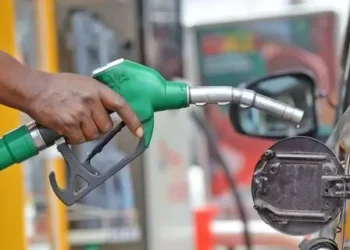Fuel subsidy removal might make inflation worse for Nigerians, according to Kayode Oluwadare, an oil and gas analyst who spoke to Nairametrics.
Oluwadare noted this while commenting on the preparedness of the Buhari administration to remove fuel subsidies before handing them over to a new government administration by May 2023.
According to him, deregulation is not usually done in isolation without proper social programs, years before the action is taken. He said the government should have set up social programs before now and removed fuel subsidies in phases.
Recall that on March 15, the Minister of State for Budget and National Planning, Clem Agba, said that the committee set up by President Buhari to structure palliatives for the fuel subsidy removal is yet to conclude plans less than three months to the end of Buhari’s tenure.
Making inflation worse: According to Oluwadare, fuel scarcity, Naira scarcity rising from the redesign policy, and negative sentiments surrounding the February 25 presidential elections, are putting downward pressures on businesses and all these contribute to inflation.
He also said that there is a trust deficit between people and the government and Nigerians’ confidence in the government is at an all-time low. All these make up bad timing for the government to remove fuel subsidies.
Is full deregulation viable in Nigeria? Citing the inflation report that was released on Wednesday by the National Bureau of Statistics (NBS), Oluwadare said core (all items’) inflation is currently at 18.84% because of fuel, gas and lubricant prices across states. He said:
- “When you add these to the possibility that fuel prices could go up to N800 per litre after subsidy is removed, how will Nigerians cope?
- “We must be careful when designing a deregulation policy for a developing country like Nigeria, where a larger part (up to 60%/70%) of the population is living on less than $2 per day, there must be some kind of benefits to Nigerians. Until certain programs are put in place to take people out of poverty, full deregulation could make things worse.”
More insights: According to Oluwadare, filling stations like the NNPC, Mobil and NIPCO are currently selling fuel for about N189 to N190 per litre in Lagos. Meanwhile, filling stations owned by independent marketers sell fuel for up to N250 to N300 per litre.
He said if the fuel subsidy is removed and fuel is sold for as high as N750 to N800 per litre, transport costs could increase by 300%. Food prices will also increase.
He reasoned that the outgoing and incoming administrations must be ready for the social fallout from this scenario.
What to do: Oluwadare says the removal of fuel subsidy should not be a priority now because Nigerians are currently struggling with the capacity to earn.
However, if the fuel subsidy must be removed, the incoming administration needs to forget about capital and infrastructural projects in the short term. He said:
- “Priority should be on solid social and welfare programs for the first six months. Nigerians should learn to manage their energy consumption to reduce their fuel purchases.
- Businesses that run on fuel will have to pass on their cost burdens to consumers and that is something that policymakers should also take into consideration when designing strategies for the fuel subsidy removal.”




















Petrol prices in Benin Republic are nearly double that of Nigeria, with prices at 650 XOF ($1.059) per liter compared to 257.12 NGN ($0.558) per liter, despite Benin Republic having a lower inflation rate of 1.2% compared to Nigeria’s 21.91%. However, Nigeria has been experiencing persistent inflation in recent years due to several factors. The injection of liquidity into the economy through controversial ways and means financing from the CBN has contributed to the issue, in addition to rising insecurity across the North and Middle Belt States, which has discouraged farmers from planting and harvesting crops, resulting in lower agricultural yields and higher food prices.